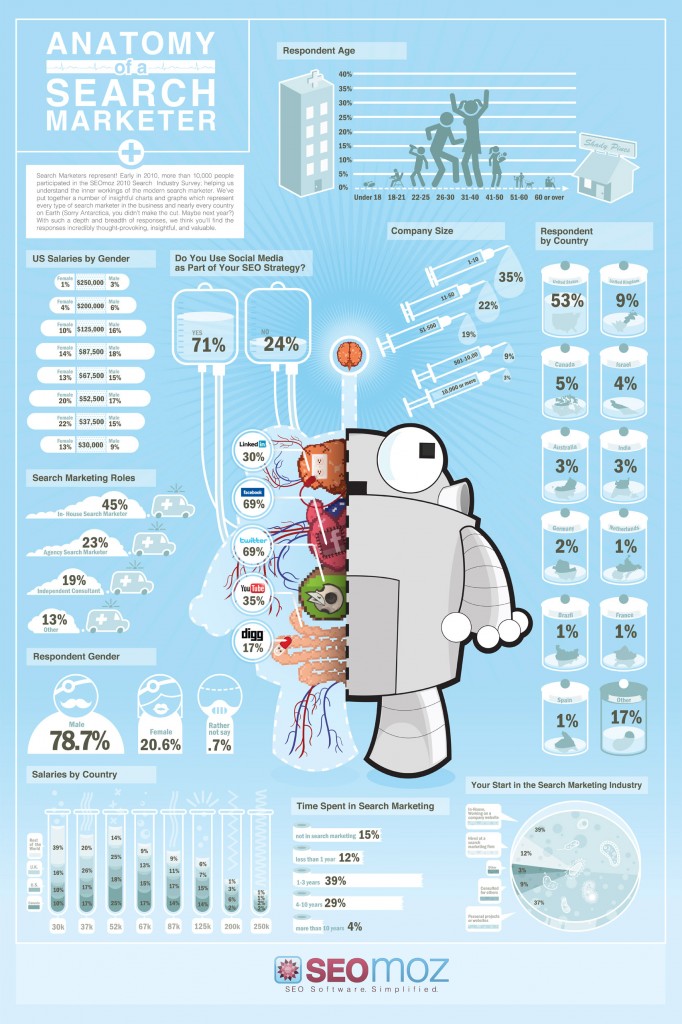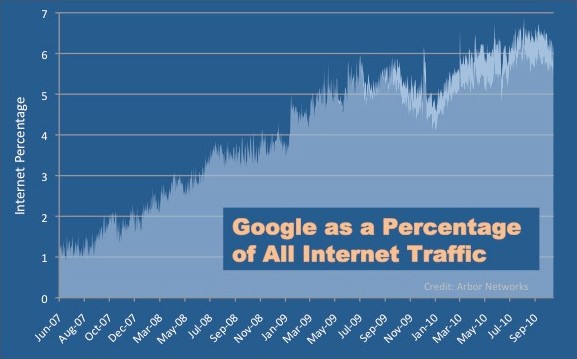SEOmoz, a company well known to those who do a bit of SEO has just released a study on the use of SEO by the companies. Le questionnaire avait 45 questions et plus de 10,000 personnes (de 90 pays différents) y ont répondu. The questionnaire had 45 questions and over 10,000 people (90 countries) responded. Comme ils le précisent en préambule, pour certaines questions ils n’ont pu traiter que les USA et le UK compte tenu de la taille de l’échantillon. As they state in the preamble, on some issues they could address that the U.S. and the UK given the sample size.
L’étude évoque les aspects salaires, la répartition agence et fait maison, le spam, le paid link, les budgets… Une étude à lire en intégralité ici (les données brutes sont téléchargeables) ou bien à consulter sur cette infographie pour ceux qui veulent aller à l’essentiel. The study discusses aspects wages, the distribution agency and home-made spam, Paid link, budgets … A study to read in full here (downloadable raw data) or to see the graphics for those who want go to the essentials.

SEO en entreprises, étude sur les pratiques.


